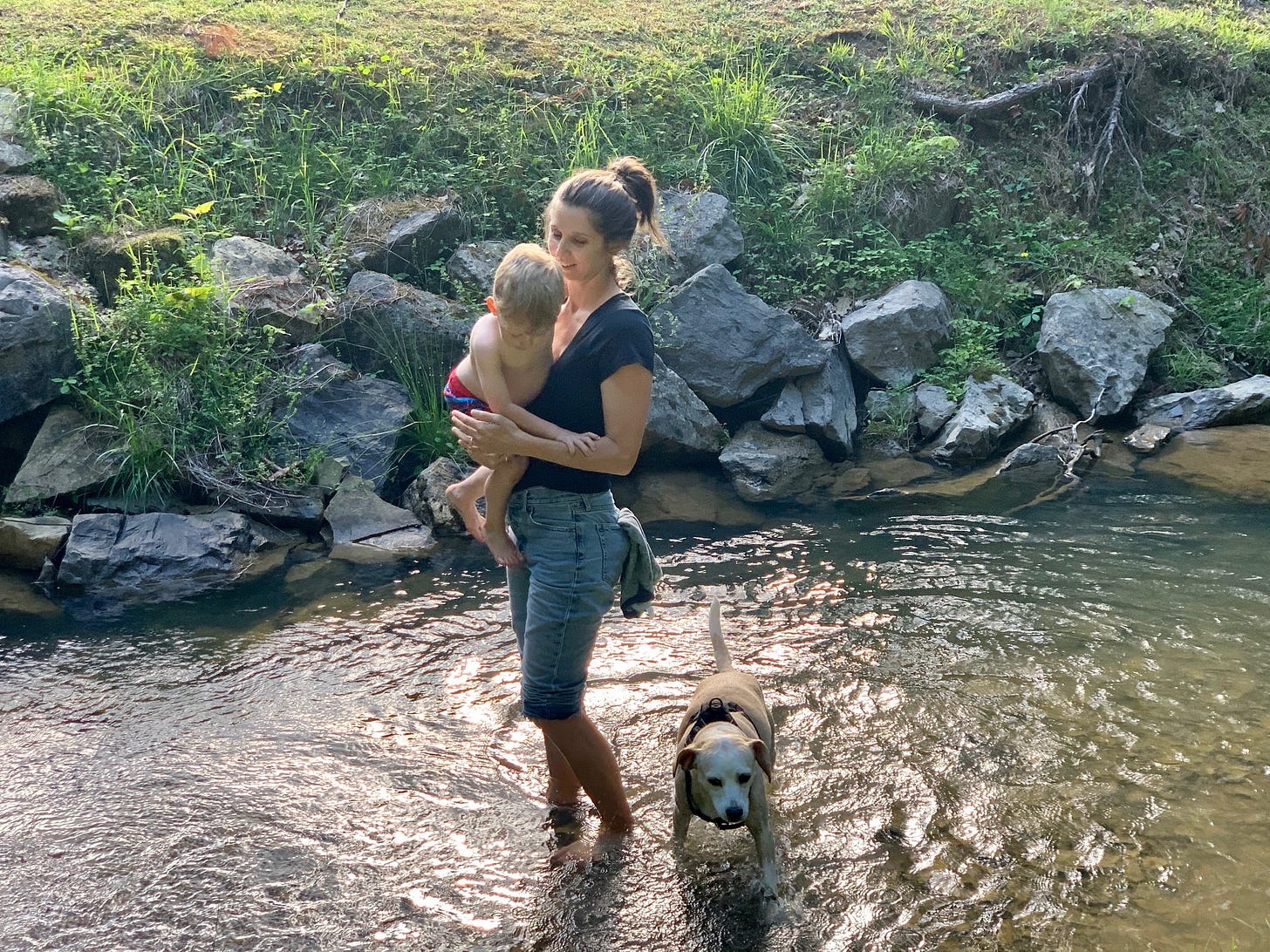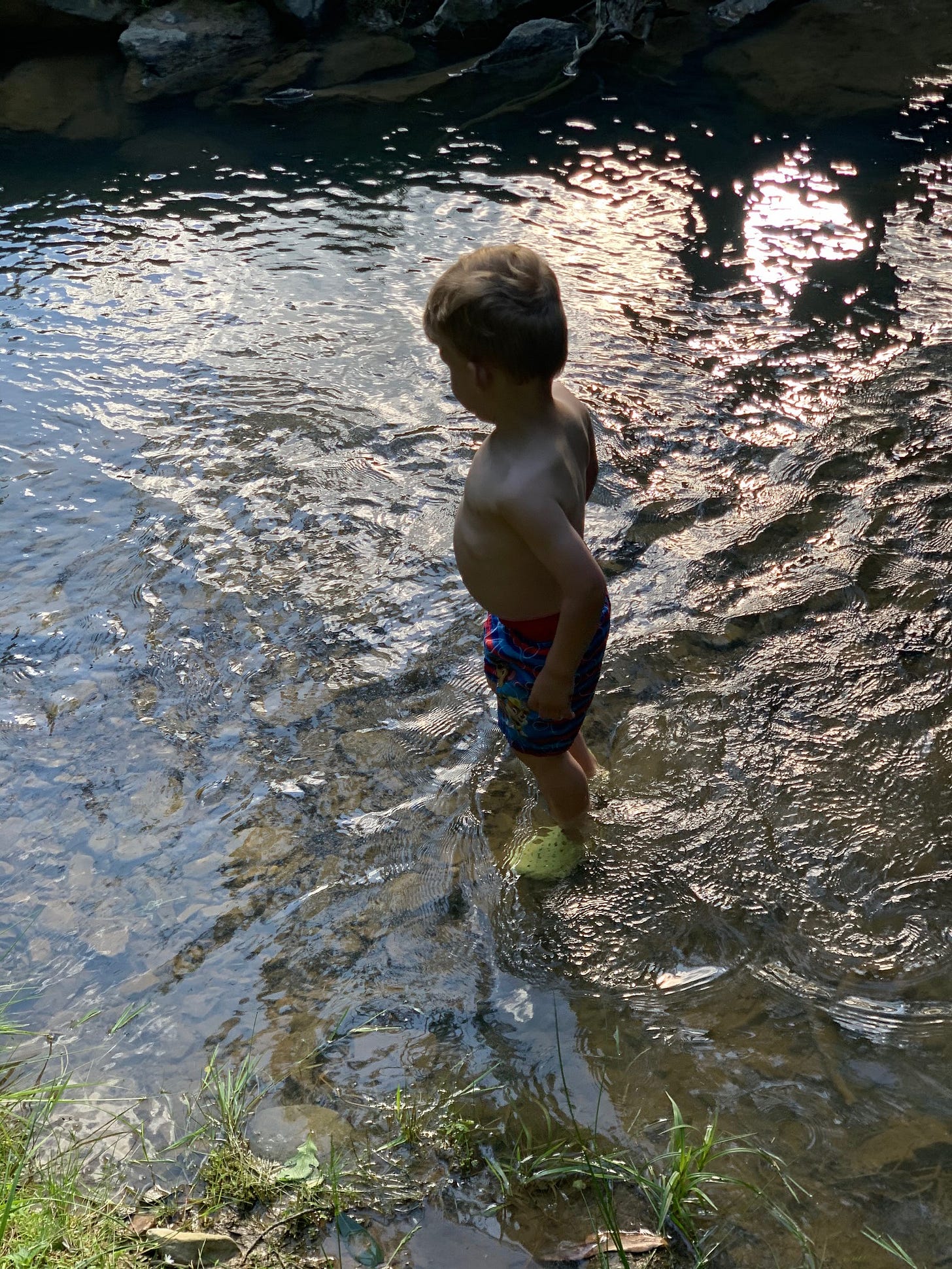This is part of a monthly series called Path to Publication.
In it, I will unpack the story behind my stories. These reflections are part process, part strategy.
There will be clear takeaways for your own creative work. I will include sample pitches, along with editors’ names and rates (at the time my published pieces went live). I’m sharing the intel I’ve gathered in the hope that it can help you place your own work.
At the beginning of 2022, I had, essentially, zero bylines. Since then (in the span of two years), I’ve published nearly 50 short essays. It’s not like I became particularly prolific. I’ve always been a writer. I just became serious about learning the tips and tricks for placing a piece in a popular outlet. And that’s what I’m looking forward to sharing with you.
By June of 2022, I’d landed a half-dozen bylines, and they were all pretty dark. Medical trauma, perinatal depression, pandemic fear: these were topics that I thought were important, these were all subjects where I had something to say — but I didn’t just think about heavy things.
So why was it so hard to write and publish something happy?
This was the question I asked myself while on vacation with my family in Watoga State Park. I was having a great time — we were off the grid in a rented cabin, boating and swimming and grilling out.
How could I write about this? I found myself wondering one afternoon while both of my sons took a nap. What could I say about what’s happening here?
I started thinking about what makes an essay, or any narrative, interesting.
Tension, I knew, was the answer. To compel a reader to continue with a narrative, a problem needs to be presented fairly early on. This problem should not be something that is easily solved. No one wants to read pages upon pages of description of meadows and trees.
And tension is often wrapped up in darkness.
But it doesn’t have to be.
I gave myself a simple task: to write something happy. That still had tension.
I started brainstorming in a notebook about what was interesting about my current environment. As I began to freewrite, I grabbed my cell phone — out of habit — and decided to Google our vacation destination: Watoga State Park.
And when I did this, I remembered that I could not. Google was offline — there was no cell service. This was not just because we were in the woods. Cell service was not available in the area due to our proximity to Greenbank Observatory. Radio transmissions are highly restricted so as not to interfere with the telescopes.
The place has been referred to as “the quietest town in America.”
So, I decided to write about this: I asked other tourists and locals about their experiences of living in an area with limited cell service.
And I reflected upon what it was like to parent without the temptation to pull out my phone.
(Spoiler: it was pretty fantastic)
I ended up writing a short essay (600 words) the day we got home from our trip. I knew I wanted to pitch the piece to Insider (now Business Insider). I’d already written two articles for the parenting editor, Conz Preti, and I’d had great experiences writing for her.
Business Insider runs short essays — the sweet spot is 600 words. At the time I published with them, they were paying $200 for a piece without reporting.
I sent Conz the full essay along with a pitch. In the pitch, I came up with an attention-grabbing headline. I articulated my argument. I explained why me, why them, why now.
Here’s what I sent her:
Dear Conz Preti,
When my husband planned a summer getaway for our family to Watoga State Park, West Virginia, I hoped for some natural peace and quiet. I did not realize that we would be vacationing in the Quiet Zone: a place where cellular devices are illegal.
In a 584 word essay (copy and pasted below), I explore how visiting the Quiet Zone reminded me of what it was like to have an attention span and helped me experience present parenthood.
I was so grateful to you for running my pieces about perinatal depression and having a high-risk toddler this past April. I've noticed that you sometimes run pieces that discuss travel with children (such as your article about taking your kids to the new Peppa Pig park in Florida), and I wondered if you may be interested in this reflection on parenting in the Quiet Zone in West Virginia. In addition to Insider, my work has appeared in INSERT HERE.
Within hours, she said yes!
You’ll see that in the last paragraph of my pitch, I personalized it by referencing a recent essay the outlet had run.
I’d been studying the Parent essays on the website for a while. As I looked for “types” of essays the column ran, I noticed several pieces merged first-person travel with parenting.
And then (just as I teach my students to do in my classes at Marshall University), I annotated these essays.
What is the first paragraph doing? I asked myself. How about the last?
Though I made these observations about structure/staging informally, I used to do it by hand. Before I published my first academic article, I annotated sample articles from the journal I was targeting. In the margins beside each paragraph, I wrote what each paragraph was doing.
Not what it was saying — what it was doing.
I’d write things like: “this paragraph is establishing authority!” “this one is grabbing my attention!” “this one is showing that I am well-read!” “this one is dumping a bunch of statistics!”
That sort of thing.
In these travel/parenting essays, I noticed the destination was often introduced first, and then the parenting reflection was woven into a discussion of the place.
So I used that same structure in the essay I wrote.

My piece ran about a month later on the Fourth of July.
If you’re interested, you can read it here: My family visited a town where cellphones aren't allowed. Not having service made me a more present parent.
And that’s the story behind my story with Insider.
Ask me your questions in the comments.
And tell me: do you have trouble writing about happiness? What practices do you use to break out of writing ruts?







Hi Anna, I noticed here you submitted the article rather than a pitch. Do you think they have a preference?
Omg this is, and you are, so effing inspiring! I am SO hoping I can write a post in two years saying "At the beginning of 2024, I had, essentially, zero bylines. Since then (in the span of two years), I’ve published nearly 50 short essays." Thank you so much for sharing these insights!